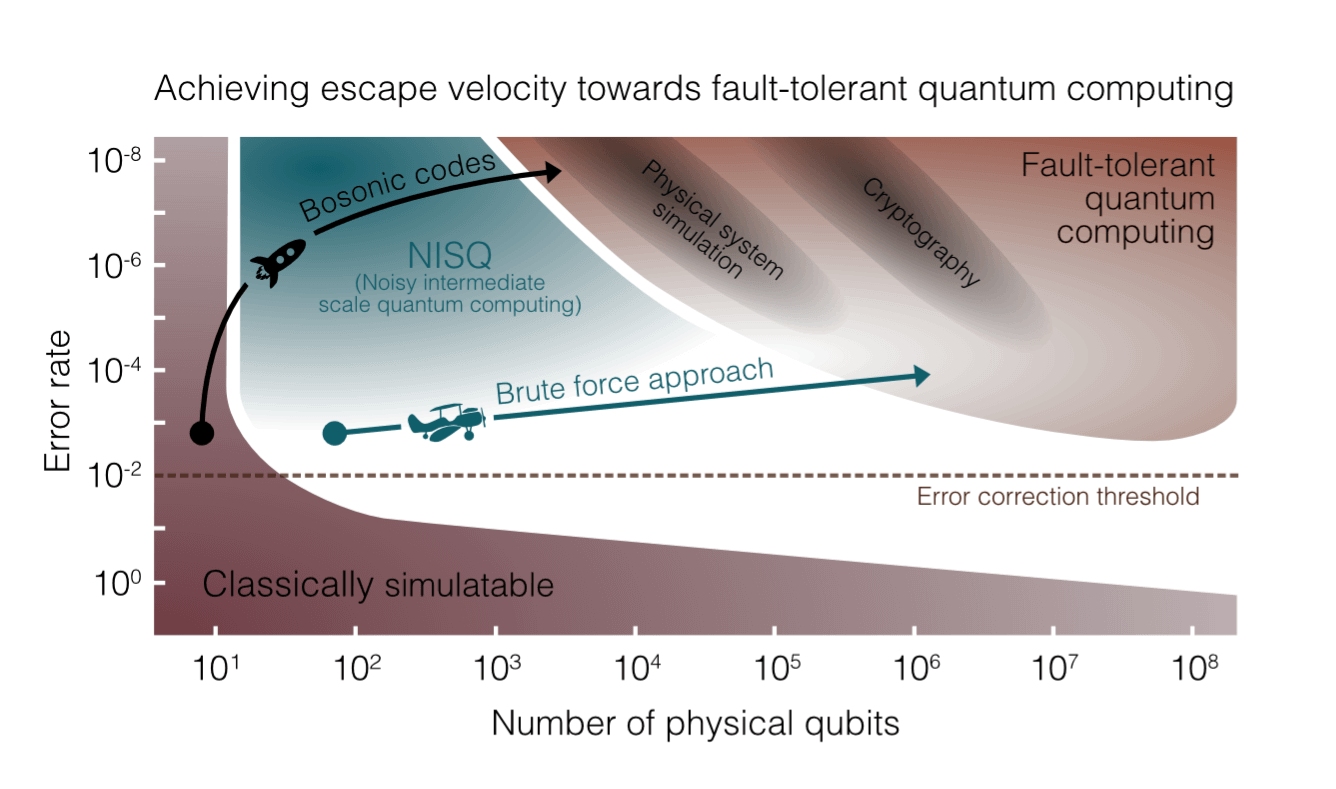World Class Quantum Error-Correction Changes Everything
Nord Quantique is recognized as an industry leader in the field of quantum error correction. Our unique approach to developing quantum computers allows us to correct the most common types of errors (bit flips and phase flips) using bosonic codes. Which means unlike other designs, we are able to correct the majority of errors without dedicating a huge overhead of qubits to error correction. This allows us to devote the majority of our qubits to actually performing calculations. Meaning we can achieve fault tolerance and deliver useful applications with between 1,000 and 10,000 times fewer physical qubits than various other quantum computing models.



